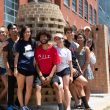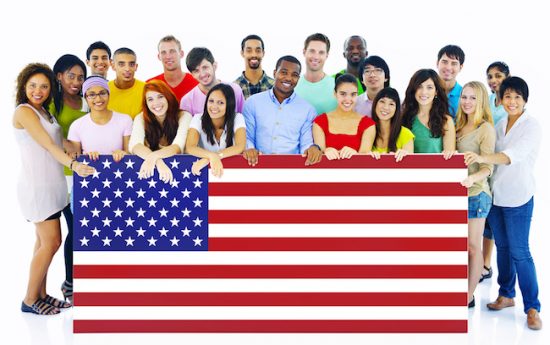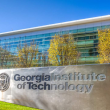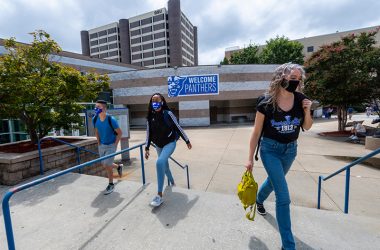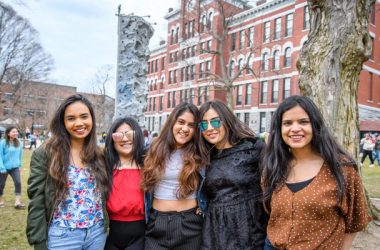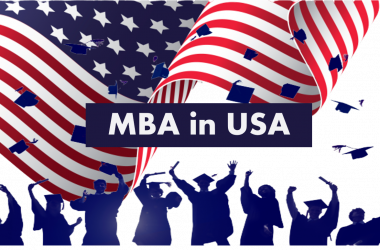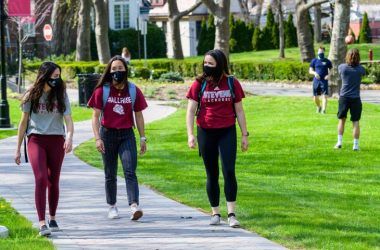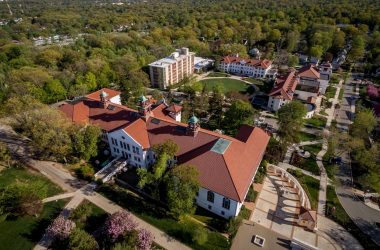Topics Under Article Hide
In this article, we’ll have a detailed argument on the How is the U.S. Education Making a Difference in a Student’s Life? Despite the fact that the U.S. is one of the maximum criticized nations in the world, it is also one of the most attractive for people who want to live and effort abroad. It is also one of the finest places to get a higher education. Topics Under Article : International Students US | PERCEPTIONS OF U.S. EDUCATION EXPERIENCE | Flexibility in the U.S. Education System | Research Opportunities in the US | What does U.S. Offer.
Though, it is significant to choose the university that gives you a good level of knowledge – with the right institute by your side, you won’t have to ask anybody for a research paper help throughout your study years, in its place, you’ll ace it all on your own.
If you are speculating about what to reflect when applying for universities in the US, here is an impression of the things that you may or may not like near the US education system.
Contents
- 1 International Students US
- 2 PERCEPTIONS OF U.S. EDUCATION EXPERIENCE
- 3 EMPLOYMENT OUTCOMES OF INTERNATIONAL STUDENTS LIVING OUTSIDE THE U.S.
- 4 IF INTERNATIONAL ALUMNI COULD START OVER AGAIN
- 5 Flexibility in the U.S. Education System
- 6 Research Opportunities in the US
- 6.1 1. Flexibility in declaring a major
- 6.2 2. Taking a range of general education classes
- 6.3 3. Emphasis on internships & career advancement
- 6.4 4. Engaging in the full campus experience
- 6.5 5. Diversity of student population on campus
- 6.6 6. Specialized facilities and support for international students
International Students US
A point to deliberate is that the information underneath might not reflect your place on learning in the US. To you, some of the positives may be negatives and vice versa. Now we are trying to assessment the information from an international standpoint. Before we look into the pros and cons of US education system, let’s need an overview of International scholars and US education system.
1. Diversity
With a country, comprising 50 states dispersal on an entire landmass, you can imagine the irresistible range of options and majors that are at your removal, and, with English being the universal language, you can almost choose any area of study in any university. Another optimistic side of the US education system is that, with such a big potential, there is a substantial chance for you to find a database which best suits your interests. In adding, as an international scholar in the US, you may find a program, which is looking for applicants from your region.
The US education scheme has a lot of diversity databases which encourage scholars from all over the world to apply. This is a golden chance for the scholar communities which belong to the underdeveloped republics to gain international involvement, thus helping them recover their quality of life in reappearance.
Further to this, the universities also proposal dissimilar funding options in order to inspire international requests, thus filling their quota and rising their international and domestic recognition. There is also a high respect for sports teaching in the US education system and there are a lot of grants aimed at developing the athletes’ possible.
2. Flexibility of Education
The US education system is one of the greatest diverse in the world. Scholars have unlimited selections on what they could study. Typically the U.S. universities offer you the option to trial with different options in the first two years of your teaching, as opposite to European universities, where you pick a exact topic with predefined prospectus and you follow it throughout your educations.
This change in the US education system lets you to gain a different viewpoint and to avoid spending money on somewhat that you don’t want to study. It also inspires you to broaden your information on other fields so you could healthier develop your skills and character. For example, if you are learning to be a lawyer, you might want to cover options for public language, mental and argumentation, literature, PR; in its place of only covering courses that are straight linked to your subject.
Another stimulating feature of the US Education system is the emphasis on the growth of an all-round national of mind. This means that your aptitudes are documented and nurtured by hopeful you to contribute in additional and outdoor doings, round tables, investigation etc. In addition, U.S colleges provide up to date amenities and advanced technologies, which are being industrialized onsite and can be rummage-sale for work on government and secluded projects.
3. Academia and student life

Because of the high educational standard, many US campuses attract the best and brightest academics from around the world every year. You will have the chance to meet and interact with top-notch investigators who acquires in-depth field information and experience. This will give you admission to wide knowledge and contacts.
In addition, staying lecturers will not only read talks but will also imagine from you to get in touch with them, so you could share your opinions.
In this respect, academic life in the U.S may be additional hands-on and communicating than the one in other republics. In class, scholars may be predictable to fast their view and the lecture himself is in open form. This makes an setting that tolerates deliberations and dialogue.
Typically, the scholar life is located mostly on the site. The halls are also located there. Commonly the site is outdoor of the city or in a chosen area. There, one can also find the essential utilities, eateries, bars, cafes and clubs.
Meanwhile you will be expenditure most of your time on the site, the student life is stared more like a public, where you can interact with other scholars; engage in different doings, clubs and administrations.
We powerfully endorse you to get complex in such activities, as they will help you with the cultural mixing and will fashion opportunities for bonds, collaboration and academic ties.
4. Global recognition
With some exclusions, US universities are extremely stared around the globe and applicants with US Diplomas have a better accidental to be picked by Bosses.
In a review for top universities in the world from 2014, 40 out of 100 universities are situated in the U.S, 7 of which are in the top 10.
Understanding how the U.S. does creates a difference for you?
To uphold their top position in an progressively competitive environment, higher education institutes (HEIs) in the United States must offer global scholars and their families a high return on asset (ROI). Since global scholars now have more options to study abroad, U.S. HEIs must contest with other republics by going to greater lengths to meet international scholars’ needs.
Some conventionally sending countries, such as China, are becoming terminus countries, and scholar mobility trends are so shifting. Compared with the U.S., many nations offer international students more efficient visa and post-graduation work chances and more inexpensive tuition rates. Learning at a four-year college in the U.S. today costs closely twice what it did a period ago.
Out-of-state fees at public and private institutions average $37,430 and $48,510 per year, correspondingly. Compared with what in-state national students pay, international scholars typically pay double in tuition fees along with extra expenses such as global student fees, airfare, and visa costs.
Given this dynamic, multifaceted environment, it is more significant than ever for U.S. HEIs to bring a degree of value. To device their insight of the ROI on their U.S. education, WES plotted 1,655 international alumni who progressed between 2012 and 2019. The research was lead from February to March of 2019 as part of a education that will be free this fall on the global scholar experience at U.S. HEIs. Although defendants avowed the value of their degree, the survey unprotected some gaps, indicating a need for developments in areas of global student and alumni prospects, career support, and visa facilities.
PERCEPTIONS OF U.S. EDUCATION EXPERIENCE
The overwhelming mainstream of global alumni designated that their U.S. degree was a good asset, partly because of high revenues both socially and socially. Alumni appear to be helping from the increased internationalization on U.S. campuses.
Most respondents designated that their teaching expanded their worldwide perspective and enhanced their aptitude to get along with people of dissimilar backgrounds, suggesting the growth of intercultural as well as moot competencies. In addition to noting these social revenues, respondents said their problem-solving services improved as part of the experienced education they conventional in the U.S.
LOCATION AFTER GRADUATION
The top five nations of citizenship in this education are India, China, Nigeria, Saudi Arabia, and the Philippines. The vast popular of respondents from India, the Philippines, and Nigeria are currently exist in in the U.S., while the mainstream of Saudi Arabian alumni have repaid home. Chinese alumni are most consistently split, with large proportions exist in in the U.S. and in China
The majority of defendants from these nations said their U.S. degree is valued in the country where they now reside. Although alumni insights from all top five nations were usually positive, Saudi Arabian and Indian alumni observe the value of their degree in their present country of house at slightly lower sizes
HIGHER EDUCATION COST AND AFFORDABILITY
Currently 75 percent of global graduates say that the general cost of their tuition plus living expenditures was worth the acquisition of their instructive knowledge in the U.S. This may be astonishing considering the high cost; yet, disaggregating the data further shows chiefly high contract that the cost was value it among graduates from the Philippines and Nigeria.
Alumnae from India and China, though, agreed at much lower rates. Nearly a neighborhood disagreed that the price of their U.S. education was worth it. This result is troublesome, seeing that Chinese and Indian scholars together make up more than half of the global scholar population in the U.S.
CAREER OUTCOMES OF INTERNATIONAL ALUMNI
Graduates are content with their U.S. education knowledge in many areas, irrespective of their republic of citizenship. The mainstream perceive an upsurge in career-specific information, job chances, and employability, signifying that a U.S. degree leads to better service outcomes. While alumnae overall (85 percent) stated that their U.S. education helped them form a global network, Chinese graduates fell slightly below this regular (81 percent).
Schmoozing as it is abstracted in the U.S. may be unfamiliar and threatening to international scholars, depending on their English linguistic ability. Existing research shows that Chinese global pupils in particular fight to communicate in English. The linguistic barrier could assistance explain why Chinese alumnae are less likely to agree that learning in the U.S. helped them develop a worldwide network
For international graduates, securing employment and making an income whichever in the U.S. or out of the country is a key measure of success. Likened with how they assess other vocation success measures, alumni are less probable to agree that they are making higher wages as a consequence of their U.S. degree than if they had earned the similar degree in another country (see Figure 5).
Moreover, 60 percent of alumnae from Saudi Arabia overpoweringly disagree that they are earning higher pay, and additional than half did not perceive an upsurge in job opportunities, indicating dissimilar outcomes for alumni. These figures are maintained by the higher joblessness rate found among Saudi Arabian graduates
EMPLOYMENT OUTCOMES OF INTERNATIONAL STUDENTS CURRENTLY LIVING IN THE UNITED STATES
Given that additional than half of the graduates surveyed progressed within the last three years, it is predictable that most (70 percent) are motionless in the U.S. today. Of those, 75 percent are working full time and 11 percent are working part time. Global alumni from the Philippines have been chiefly successful in the U.S.: 85 percent have got full-time employ, and 10 percent, part-time. Indian alumni have also knowledgeable high levels of achievement (84 percent).
Fascinatingly, 83 percent of Saudi Arabian alumni are now working in a full- or part-time position; however, when we disaggregate these numbers, only 50 percent are working full time.
Despite their mainly fruitful entry into the U.S. labor force, some scholars are in a state of precarity. In the face of augmented physical and social barriers, they have not been talented to convert their instructive experience into expressive employment. Constant visa vicissitudes, restrictions, and delays are creation it progressively difficult and unclear for alumni to make usage of their U.S. education.
The Wall Street Journal stated that 78,000 fewer visas were delivered in 2017 to international scholars in the U.S. than in 2016. As a consequence, the two largest global scholar populations—from China and India—saw the main drops. A former global student from China participating in our study noted, “The immigration rules are receiving tougher on skilled specialists—the U.S. market is losing pull as scholars face barriers to entry and post-graduation work chances.”
Qualitative data from the investigation indicate that global graduates meeting many challenges, chiefly with regard to visa supplies and U.S. employer conceits toward hiring global workers.
For their global students to uphold a high ROI, U.S. HEIs must take active measures, such as ornamental visa counselling and facilities, to offer greater provision to global alumni who are navigating post-graduation work opportunities. If worldwide graduates are powerless to obtain professional knowledge as a result of cumbersome and confusing visa work processes, then U.S. HEIs may be at danger of achieving only low international scholar numbers in the future.
EMPLOYMENT OUTCOMES OF INTERNATIONAL STUDENTS LIVING OUTSIDE THE U.S.
Of the 30 percent of graduates who left the U.S. afterward earning their grade, most believe it grips value in their present country of house (83 percent). Seventy-seven percent who repaid to their home republics are employed, whichever part time or full time. Scholars from China (88 percent), the Philippines (83 percent), Nigeria (83 percent), and India (74 percent) found service in their home country after learning in the U.S. Saudi Arabian alumnae, though still fruitful (69 percent), were less likely to be working.
Although the mainstream of all the alumni surveyed were content with their U.S. teaching, 29 percent of Saudi Arabian alumnae remain jobless after making their degree; this unemployment rate is 10 percent higher than that of any of the other top five republics and may designate that local economic circumstances are the problem, not the alumnae’s U.S. education. Notably, Saudi Arabia’s unemployment rate in the first quarter of 2019 was 12.5 percent, about one and a half times India’s rate of 6.9 percent, and extra than tripartite China’s 3.7 percent.
IF INTERNATIONAL ALUMNI COULD START OVER AGAIN
Maybe the greatest amount of international alumni insights of the value of their education is whether or not they remorse their choice to study in the U.S. Eighty-one percent of defendants designated that, given a second accidental, they would still choose to study at a U.S. organization. Though, when defendants were requested whether they would attend the similar HEI, a slightly dissimilar picture arose.
Alumni from the Philippines were greatest likely to say they would join the same institution, while Chinese alums were nearly evenly split amid choosing the same or a dissimilar HEI. Fascinatingly, more Indian and Saudi Arabian alumnae said they would education at a dissimilar institution . These replies indicate a misalignment between international scholars and HEIs regarding finest fit, particularly for scholars from India and Saudi Arabia
RECOMMENDATIONS FOR HEIS
Overall, graduates were fruitful at finding service after graduation, and they look back on their U.S. schooling experience definitely. Of recent and past alumnae, 81 percent said they would still select to attend an organization in the U.S. if they could start over—a clear sign that U.S. HEIs are if a high-quality schooling to international scholars. In adding to revealing these positive insights, the study shows that there are some areas—about cost, expectations, and vocation services—that could be improved to enhance the global student and alumna experience.
Although monetary and structural fences that impact the scholar knowledge are beyond the control of organizations, the following institutional movements can improve the ROI of global students’ U.S. education:
- Expand networking chances. Meaningful how to network can give global students an benefit when they are seeking service, but successful schmoozing can be challenging. To help them grow this skill, HEIs can host additional networking proceedings and packages that allow students to brand influences and form a global network that will assistance them after graduation.
For example, Michigan State University grips a weekly schmoozing event, Coffee Hour, which delivers an opportunity for global scholars to connect with other students, graduates, and professionals.
The University of Illinois at Urbana-Champaign has industrialized several innovative networking databases for diverse scholar populations. One is the Diversity and Inclusion Networking Interchange (DINE), which helps scholars engage with bosses. Other HEIs can grow similar programs and gear them toward worldwide students.
- Enhance visa advising. Offering more chances for international scholars to discuss and comprehend visa guidelines and changes can assistance better prepare them to navigate their vocation post-graduation? HEI re-entry databases are one way that institutions can provision graduating global scholars as they pursue their expert goals. American University’s re-entry program helps scholars change to employment both in the U.S. and foreign. Its sessions on leveraging one’s global background, networking, and visa choices are run by an immigration advocate.
- Expand career support services. HEIs must make an exertion to liaise with and form a linkage of employers who are absorbed in hiring international graduates. The University of California Berkeley created a S. Employer’s Leader to Hiring UC Berkeley International Scholars, which companies can use to learn nearby international scholar visa options and the employer’s role in conference visa requirements. These choices include Curricular Practical Training (CPT) and Optional Practical Training (OPT), which deliver work authorization to global scholars and graduates, correspondingly. Indiana University industrialized an Immigration Bridge Program which contributions international scholars and recruiters with visa courses and employer support. Other HEIs can tool similar databases to assistance connect global students and graduates to future employers.
Multicultural Environment
The United States of America, due to its huge size and varied heritage, has one of the most complex ethnic identities in the world. Millions of settlers from all over the globe have journeyed to America since the Europeans discovered and occupied the land back in the 17th and 18th centuries. The amalgamation of cultural backgrounds and civilizations in America led to the country becoming recognized as a “melting pot.”
As the third largest nation in both area and population, America’s size has allowed the formation of subgroups within the country. These cultures are often geographical as a result of settlement designs by non-natives as well as regional weather and landscape differences.
While there are uncountable ways to divide the U.S. into areas, here we have referenced the four areas shown in the map below. People from each region may have different lifestyles, cultural values, business does and dialects. While there are qualities and standards that most Americans usually share, it is significant not to generalize or shoulder that all Americans think or act the similar way.
- The Northeast area is largely industrial and life here is fast-paced. The region is home to some of the main U.S. cities like New York, Boston, Philadelphia and the U.S. capital Washington DC. North easterners have a sense of local pride for their states’ connotation with the original 13 colonies. Their colonial arrogance is evident in their expert sports teams; the names of sides in this region (Patriots, Yankees, Nationals, 76ers) make exact orientations to American history.
- In the West, though, time moves a little leisurelier and life is more tranquil. Westerners often order happiness and individual endeavours over career achievement and achievement. People living on the West Coast are known for their love of the out-of-doors and their care for the situation. Fun marijuana is also legal in six of the Cowboy movie states.
- The South is maybe the most separate region of the United States. Much of the South’s past deals with slavery and the American Civil War. Southerners highlight family, religion, and traditional values. People here are known for their “Southern hospitality.” Southerners share a sensation of pride for their area and country which forms a robust sense of public and brings persons together.
- The Midwest is in some ways a mixture of the other three areas. People here worth hard work and independence. These conditions are filled with certain of the country’s largest cities, yet outdoor those cities and conurbations there is mostly country. The Midwest is occasionally referred to as “America’s Breadbasket” for its lush soil and extensive country.

Flexibility in the U.S. Education System
Flexibility is one of the utmost attractive topographies of the U.S. education system. This is since of its relation with:
- Better attainments
- Inferior risks of school failure
The U.S. law binds scholars to know-how a flexible education. Beforehand picking specialisations scholars must get a comprehensive, overall education. This incomes that at the scholar level, students education multiple subjects. Once they gain knowledge around a number of subjects, they can choose their exact specialisations.
Features that display flexibility of the U.S. education system
- Grades are feast over the whole academic year. Scholars submit numerous graded projects and projects instead of one last exam. This helps scholars see their progress. It thrusts them to effort hard.
- Secondly the U.S. teaching system does not weight students to alteration for the system. In its place, Universities alteration to every person’s abilities. All time-tables are founded on personal academic boxes instead of overall goals.
- The education system is too very diverse. Scholars have the option of reviewing many dissimilar subjects composed. They can education subjects from the arts and disciplines together.
- Scholars who actively involve in co-curricular doings are also given singular support. For instance, expert student-athletes can mix their athletic sessions with their schooling sessions.
- Studentships in the U.S. are not incomplete to financial need. They are also based on educational merit. Additionally, presentation in non-academic fields like – sports, music, drama, etc are also careful.
- The U.S. education system also welcomes a multi-cultural setting. Even scholars coming from outdoor feel included. This kind of suppleness also helps overwhelmed cultural tremor.
- Professors emphasis more on services instead of text-book learning. This brings a optimistic impact on students. It assistances their general professional growth.
Learning in the U.S. opens a big range of chances for a student. It attitudes for freedom, fun, and wisdom. It assistances students be a part of the culture of suppleness.
Foreign governments have a hard time sympathetic the USA education scheme since no US government activity such as a Ministry of Teaching awards licenses or favours an institution’s right in America to award gradations. The US Department of Teaching does not do this and leaves it to the seminaries themselves to provide the dimension and standards for trustworthiness, teaching quality and accreditation. No current laws be at the national level to demand a university of any kind succumb to any accreditation endorsement process, or education quality control amount.
The USA’s Department of Education delivers a list of approved non-governmental secluded organization of education authorization that permits their authorized and accredited memberships to qualify for and receive US Government scholar loan capitals. This group is checked by the CHEA, Council of Higher Education Accreditation, another non-governmental organization.
The USA Section of Education, through the CHEA, Council of Higher Education Accreditation, has many activities of authorization on its accepted list. Any school not accredited by these accepted bodies, or by an organization documented by them, is careful unaccredited and typically discriminated in the USA as missing the necessary education excellence.
State government establishments are responsible for modifiable postsecondary teaching within their jurisdictions through the initial endorsement of providers to offer postsecondary teaching services, oversight, and the implementation of applicable national laws and rules.
If you have anxieties about a specific university being putative by employers in your state in the USA or bosses in your home country, we inspire you to do your homework earlier you enroll. Each state must provide info about institutions and packages approved to function in their jurisdiction, and how they monitor teaching quality and accreditation.
State approval and authorization are not the same. State endorsement to operate means that institutions have satisfied certain supplies established by a state. Authorization indicates that an institution has attained a threshold level of theoretical and education excellence. In most states, approval to function does not require authorization. Use all available resources; including checking with the specific institution and its accrediting organization, to regulate if a specific institution meets expected needs.
EROD Directory of State Higher Education Activities provides interaction information and links to the numerous state higher education commands, whose websites cover extensive capitals about policies and other materials, plus directories of approved institutes.
There is no solitary authority in the United States for the gratitude of foreign degrees and other qualifications. Global agreements and the repetition in the U.S. education scheme and labor market recognize the being of three competent authorities for credit matters:
- The confessing school or higher education organisation, for scholars who seek to schoolwork in the United States and who are awarding credits or experiences earned abroad;
- The hiring company, for folks seeking work and who are awarding degrees or other qualifications received abroad; and
- State or local licensing boards, for persons seeking to practice controlled occupations in a jurisdiction of the United States and who are giving degrees or other experiences earned overseas.
Many, if not greatest, of these competent authorities in turn be contingent on skilled comparability recommendations ready by credential assessment services. Qualification estimation services are independent governments that perform examines of non-U.S. qualifications and subject references as to how a particular qualification likens to a similar qualification or set of experiences in the U.S. education system, labor market or the occupations. International Students US .
Credential assessments vary in cost depending on the difficulty of the analysis and the amount of certification available, and are generally paid for any by the individual or occasionally by an boss.
Information for Persons Seeking to Study in the United States offers information and capitals for persons cultured abroad who seek to enroll in a education program in the United States.
Information for Persons Seeking to Work in the United States delivers information and possessions for persons educated abroad who search for to work in the United States.
Professional Recognition delivers information and resources about the credit on non-U.S. educations in the regulated livings, either in order to rehearsal the living in the United States or to enter advanced expert studies.
Information for U.S. Educators and Human Resources Professionals delivers information about U.S. gratitude of foreign instructive institutions and links to local and national foundations of information on credited institutions in supplementary countries.
Good Research Opportunities
Long and short-term moot programs are obtainable in the United States across numerous academies and educational centers. Global scholars and researchers may smear to BA, MA, Ph.D., and postdoctoral investigation databases in the United States. Besides, summer colleges and conferences are other outstanding academic doings that make the United States an good-looking destination for scholars and bowfins.
Numerous programs also come with fully-funded grants and fellowships as well as travel endowments and monetary aid, thus every student, investigator, and professor can always find a right program in the United States and apply.
Research Opportunities in the US
Use the links further down to begin your hunt for domestic undergraduate research chances. They are organized approximately by types and/or disciplines.
- Government Research Opportunities
- Social Sciences and Humanities Research
- Physical and Engineering Sciences Research Opportunities
- Life Sciences Research Opportunities
- All STEM Research Opportunities
- National Science Foundation Research Experiences for Undergraduates (REUs)
There are numerous chances for Harvard scholars, regardless of preceding experience, to behaviour research in any punishment. Becoming conversant about your individual goals and research chances will help you recognize what kind of investigation you wish to follow. Use the tabs underneath to get specific tips around research chances at Harvard, away in the US, and abroad.
Your achievement in finding a research occasion will depend on your aptitude to be proactive, shape faculty relationships, and use key capitals. However, at times, research chances won’t perfectly match your prospects, so while it is important to chart your individual goals and interests, it is similarly significant to remain supple and open-minded through the procedure. Good luck!
Jack of all Trades
At some point we have perhaps all heard the cautionary about being a ‘Jack of all trades, master of none’. It’s a informal caution in contradiction of having your hand in too numerous pots, experimenting in everything at the outlay of gaining real expertise in one specific area. It’s a sentiment that strikes fear into my heart as a PhD scholar, where the inherent aim is to develop an expert in a specific topic.
Unexpectedly, I not extended ago discovered the whole quote is in fact ‘A Jack of all skills is a master of none, but oftentimes better than a master of one’. It is really about the benefit of being a generalist – the exact opposite of the sentimentality for which it is now used.
The more investigation post-PhD career paths, the more I understand the vast extensiveness of skills required to work both in and outdoor academia. How then do we settle our goals as PhD scholars to become specialized, gaining extremely specific knowledge in our subject, while also structure skills in a whole range of areas to make our effort applicable to wider-world subjects and answer larger questions?
Some days it seems like I don’t have period to sleep or eat, let unaccompanied learn to be a project manager, cheap planner or ‘effective communicator’.
I lately embarked on a three-month residency at the Natural Sciences unit at the UNESCO office in Bangkok, Thailand. The internship is part of my Doctoral Training Agenda, a condition of which is that the work can have no relative to my PhD research. When I first recite this I was astounded – I must take three months out of my PhD to do somewhat completely unrelated? How would this assistance me to be a professional in my area? How would it help me to get my PhD?
One month into internship I have previously helped write a big funding suggestion for the EU Commission, aided organise an editorial conference for international hydrology specialists and been invited to help oversee an moot textbook. I have remained given errands and chances that I would not have thought myself accomplished of one month ago.
So far I have prospered and it is, in part, down to the services I have learned in the chief two years of my PhD. And I do not nasty the subject-specific, highly particular services (for example, how to train a bumblebee or extract RNA).
Studying at a college in the United States will deliver you with many chances that you will not find in other countries. Thanks to our generous arts system and strong STEM programs, the U.S. crops students who are well cultured across multiple punishments. But how do global scholars find the right U.S. University to pursue their educations? Here are 6 details to study in the U.S. and how our university system sets itself separately as a study destination for international scholars.
What does U.S. Offer?
1. Flexibility in declaring a major
According to U.S. News & World Bang, 48 of the top 100 World-wide Universities are in the United States. While several issues set U.S. universities apart, many scholars agree one of the best benefits of reviewing in the United States is the academic suppleness.
Scholars in the United States classically are not required to state a major until the finish of their second year of education. Many scholars will remain “undeclared” or “unsure” on their main and use these two years to travel their academic interests before relaxing on a major.
In other nations, students are typically required to state their field of study when they smear, or they must apply straight to (and be accepted by) that specific college within the university.
2. Taking a range of general education classes
Greatest universities in the United States need you to take general schooling or core classes, which give you the chance to study a wide change of academic themes – not just your major or focused field of education. These courses—ranging from script to science classes— are also mentioned to as “liberal arts,” and will safeguard you alumna with a well-rounded teaching. They also give you the time and knowledge you need to make an cultured decision when stating your major. Your overall education classes may expose a passion or ability set that you did not know you have.
3. Emphasis on internships & career advancement
Universities in the United States offer residency programs as a way to kick-start your professional vocation. Many scholars obtain internships throughout their college years to take gain of hands-on knowledge and get access to better-paying jobs after graduation. Whether you want to reappearance to your home republic after graduation or continue in the United States to work full time, your U.S. tutoring will undoubtedly be the starting point for a positive career.
.
4. Engaging in the full campus experience
The campus community is additional one of the many details to study in the United States. Colleges and academies in the U.S. offer a wide range of campus activities outside just academics. You will have the occasion to join athletics, music, play, arts, Greek life, volunteering and many other bats and student organizations. If you want to have an lively and engaging campus involvement, attending school in the U.S. will provide you with numerous chances to get involved.
5. Diversity of student population on campus
The United States is single of the maximum culturally diverse countries in the world. International scholars from all over the globe come to the U.S. for school. If you study in the United States, you will have the chance to learn new languages, encounter new friends and experience new cultures all day.
6. Specialized facilities and support for international students
United States academies offer a variety of services to help international scholars both confidential and outside of the classroom. Most universities have offices devoted to international student services. These workplaces can contribution you with English-language skills, visa issues, financial aid and even national adjustment while you study in a foreign country in the U.S. In addition, American universities offer numerous other capitals for students, from career services to mental health facilities.
This is it in International Students US | PERCEPTIONS OF U.S. EDUCATION EXPERIENCE | Flexibility in the U.S. Education System | Research Opportunities in the US | What does U.S. Offer. Check More on Study Abroad .


